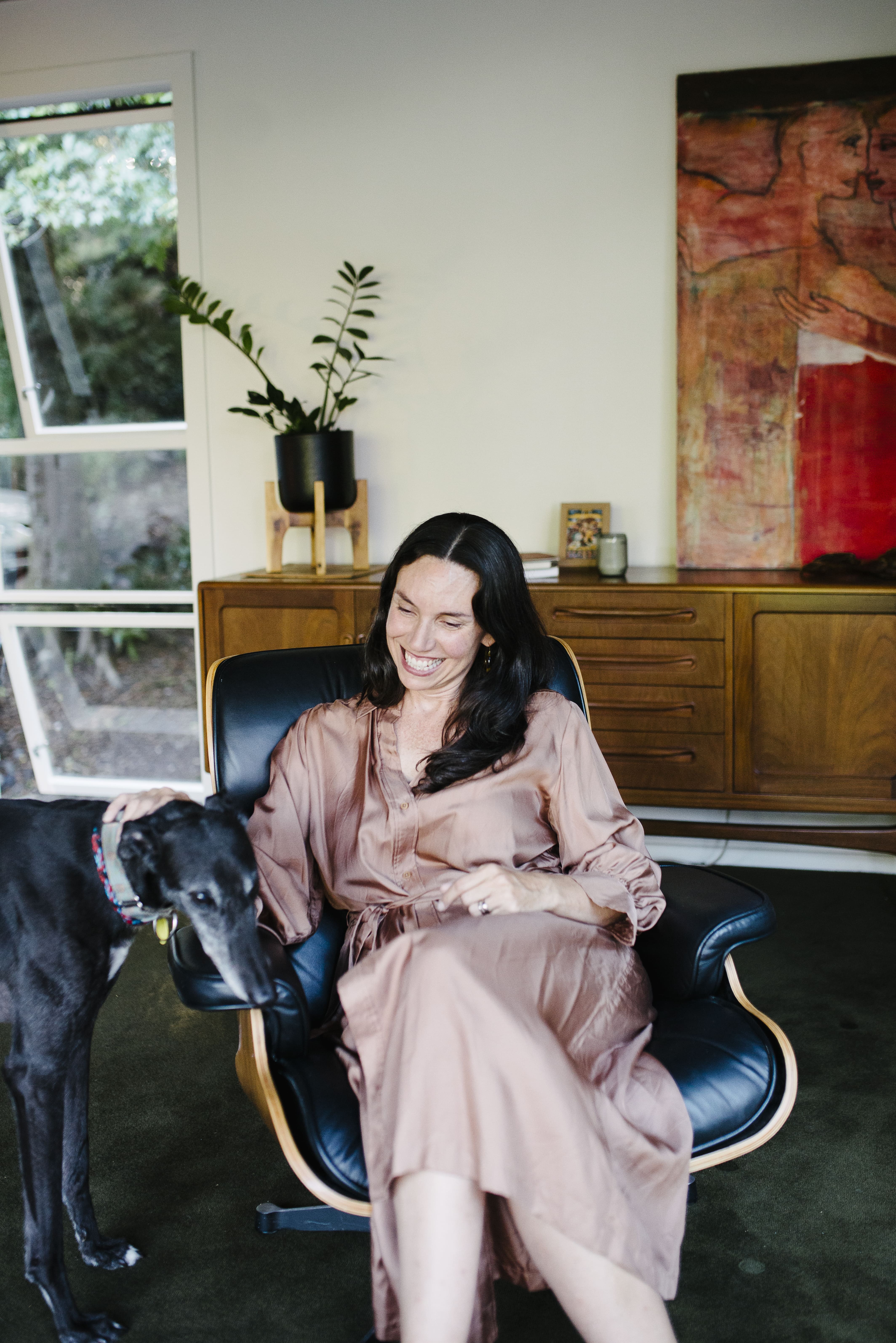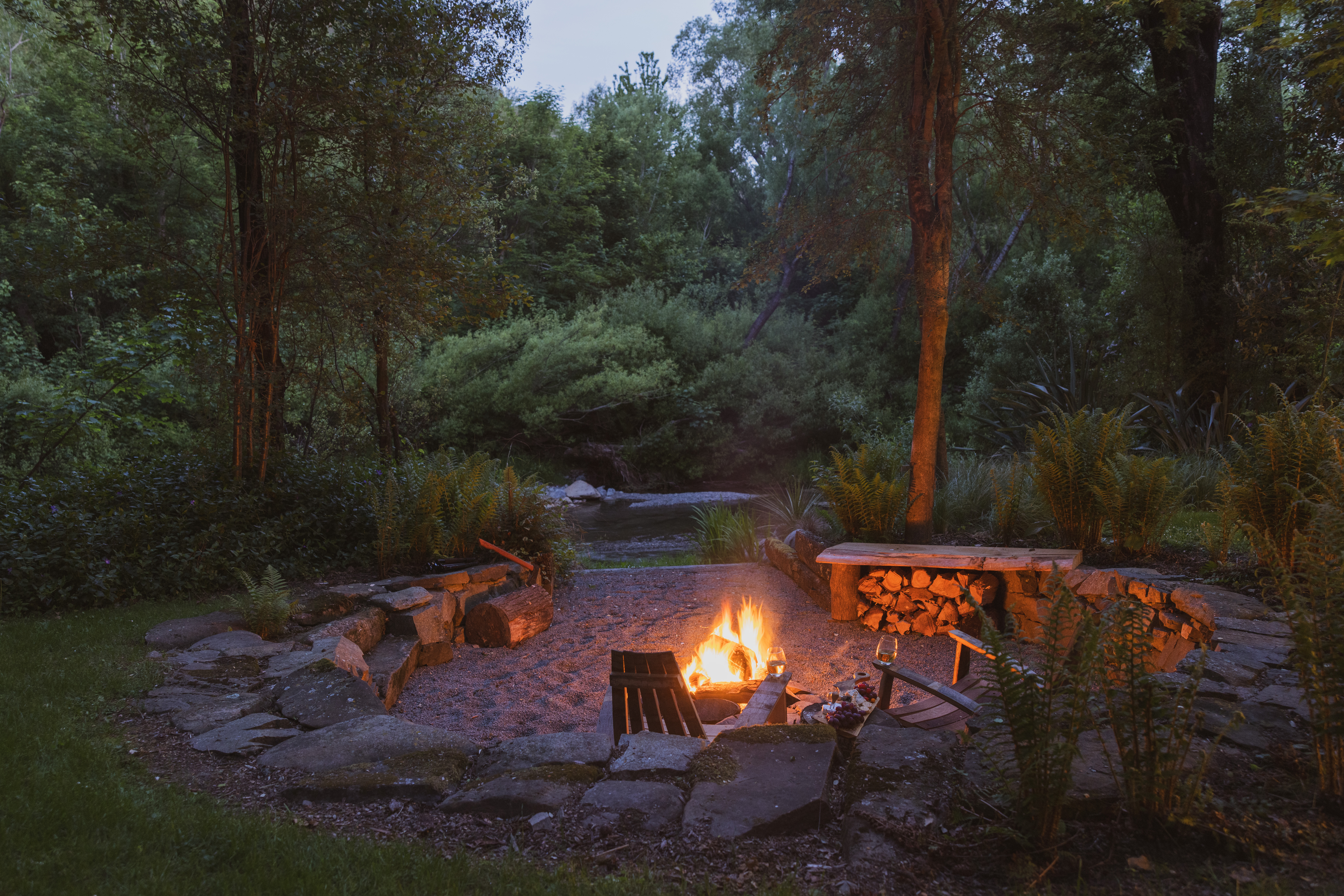
For a limited time, enjoy these amazing offers from our Twilight Collection – perfectly priced to brighten the cooler days.
Learn MoreThe Canopy Camping Escapes platform was started by two friends back in 2012, and offers a curated collection of incredible accommodation spots and escapes across Aotearoa. The escapes range from a luxurious glamping tent to a rustic quirky cabin, with each location carefully handpicked for their unique charm and connection to nature.
It was important that each location reflects the Canopy Camping ethos, in that they allow you to unplug and disconnect, as many of the locations have limited cell reception. The remote locations, often away from the hustle and bustle of a city, mean you have a chance to slow down. And with the knowledge that nature has been known to lower stress levels, each location has a strong connection to the outdoors.
Exploring this idea around disconnecting to reconnect, ahead of Valentine’s Day we spoke with Titirangi based Anastasia Dailianis, a registered counselling psychologist and couples therapist, about connecting with your partner.
Below, Anastasia shares a few practical tips on how to carve out genuine moments of connection to help foster a strong and happy relationship. We hope you enjoy these words and feel inspired to get outdoors with your partner after seeing a glimpse of the stunning Canopy Camping locations around Aotearoa.

Valentine’s Day is usually associated with buying gifts as a way to show love to our partner. But, maybe this year the best present would be to be present - with one another.
We’re all guilty of looking at our phones (be it for work or Instagram) but this a classic case of not being in the present moment, and could be preventing you from enjoying better quality time with your partner. If we look a little deeper, we could also call this an “avoidance” behaviour - even if that’s not consciously your intention.
The good news is that we can unlearn avoidance behaviours – the trick is to try and increase self-awareness, learn how to soothe and regulate our emotions, and remind ourselves just how important our partner is in our life.
Every behaviour change takes time, so be patient, be honest, and be compassionate with yourself as you grow. But I promise you - it will be worth it!
As my couples-therapy mentor, Nic Beets, says in his book ‘Make Love Work’; ‘Your relationship will only make you happy if you also let it make you grow’. Personally, I find that extremely exciting! If we stop trying to hide our faults, fears and insecurities from our partner, we can actually start to address those insecurities with the support of someone who loves us. In this way, we become more authentically ourselves and develop self-acceptance and genuine self-confidence. Not only will we have a much more satisfying relationship, but we will also be much happier and more comfortable with ourselves.
Sounds good, right? So, here are a few simple steps you can start taking right now to head in the right direction.
First, take a moment to step back and notice your own behaviours and thoughts – are they bringing you closer or pushing you further away from your partner? Be honest, but also be compassionate with yourself. For example, learn to recognise when screens are unnecessary, like during quality time together, and choose to put them aside. This allows for more moments of unplugged togetherness when you have the potential to foster a deeper relationship.
Sometimes couples avoid spending connected time together because they worry they’ll end up talking about difficult subjects, which might result in experiencing uncomfortable feelings they are not prepared for. So my second tip is to make sure you allow time for the three different types of communication needed in every healthy relationship. Comfortable close time is what we all probably enjoy the most, when you’re snuggled up watching a movie or eating a meal, when everything is easy and you feel lots of warm fuzzy feelings of approval and happiness. But it’s equally as important to allow space for intimate vulnerable time, to discuss things which are important to you but which could be potentially contentious or emotive for your partner.
This type of communication takes thoughtfulness and care, so plan for it, don’t spring it on your partner and expect them to respond well. And, lastly, although it can seem a little boring, setting aside time to speak about the operational logistics of your life together, such as what your schedule is like this week, or who’s doing the groceries, shouldn’t be forgotten. Good communication on this level makes for a smoother life together, with fewer misunderstandings. It’s highly recommended to actually schedule in time with your partner for each of these different types of communication. That way everyone is on the same page, and you’ll feel less like you need to avoid talking for fear that it will get into tricky territory when you really just want a fun date night!
Another way to help reduce using your phone as an avoidance behaviour is to immerse yourselves in an environment which fosters connection. For many people going into nature together can work wonders.
If you find it hard to switch off your device and connect day to day, then seize the opportunity when your ‘wise-mind’ is taking the lead to book a camping trip, or a night away in a remote location, or even just plan a day trip out walking in the bush. The less reliable the internet connection, the more likely it is that you’ll slow down and enjoy quality time together.

To learn more about the wonderful Anastasia and her practice, please pop over to her website.